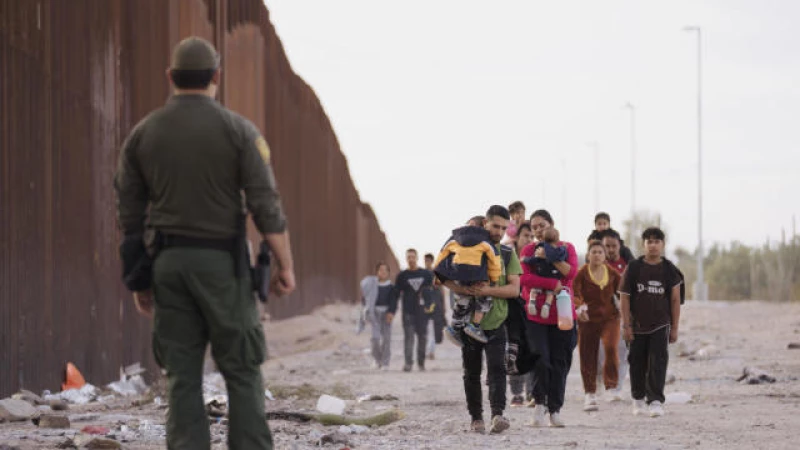President Biden's Immigration Policy Shift
Washington — Less than two weeks after he took office and halted border wall construction, announced a deportation pause and suspended a rule requiring migrants to await their court dates in Mexico, President Biden issued an executive order signaling a dramatic shift in U.S. immigration policy.
His administration, Mr. Biden promised in that February 2021 order, would "restore and strengthen" the U.S. asylum system and reject the Trump administration's border policies that "contravened our values and caused needless human suffering."
Nearly three years into his tenure, Mr. Biden now finds himself entertaining drastic and permanent restrictions on asylum — including an extraordinary authority first invoked by former President Donald Trump to summarily expel migrants during spikes in illegal crossings — in order to convince congressional Republicans to support more military aid to Ukraine.
In many ways, the president's willingness to support strict border policies similar to those employed by his predecessor — and loathed by progressives and human rights advocates — reflects a seismic shift in the politics of immigration over the past several years.
Immigration Challenges and Compromises
It's a shift fueled by a convergence of factors. Record levels of migrant apprehensions along the southern border have strained federal and local resources. Democratic-led cities like New York and Chicago have struggled to house new arrivals, with local officials loudly voicing their concerns about overwhelmed services. Public polling shows a majority of Americans view the immigration agenda unfavorably.
A recent poll found that immigration and the border rank as the second-most important issues facing the country, just behind worries about inflation and ahead of concerns over the future of American democracy.
The White House has conceded it's going to have to compromise away some of its positions on immigration policy. "We have to find a bipartisan compromise — that's what the president said; that's what the president believes — in order to deal with this issue," White House press secretary Karine Jean-Pierre said this week.
Senate immigration talks
The administration's increased engagement in talks in the Senate, and its openness to sweeping border changes, have been welcomed by Republican negotiators, who have described significant progress in the negotiations in the past two days. Senators are trying to find agreement on a roughly $100 billion emergency funding package that includes billions of dollars in foreign aid to Ukraine, Israel, and Taiwan.
But the talks have also created rifts among Democrats, with progressives expressing concerns that compromises may be made without addressing long-standing Democratic legislative priorities on immigration, such as granting legal status to so-called "Dreamers" and other undocumented immigrants.
A former immigration official in the Biden White House, Andrea Flores, expressed her concern over the Democrats adopting Trump's border security solutions. She urged the Administration to resist this "bad policy and politics." Representative Joaquin Castro, a Texas Democrat, also criticized the Democrats for accepting Trump's anti-immigrant policies and warned against tying immigration policy to foreign aid funding. The Senate negotiations have surprised Latino Democrats on Capitol Hill, as they were not included in the talks. Democratic Senator Robert Menendez of New Jersey, the longest-serving member of Congress, criticized the exclusion of the congressional Hispanic caucus from the negotiations, calling it a "hard slap in the face" to the Latino communities they represent.
Sen. Alex Padilla, a Democrat of California, expressed his opposition to returning to the Trump-era immigration policy, stating that it would worsen the problem. He highlighted concerns about mass detention, dismantling the asylum system, and the excessive use of Title 42. Padilla emphasized that these measures are unacceptable and not the solution to fixing the immigration system, as they have been proven ineffective.
Cecilia Muñoz, who served as former President Barack Obama's top immigration aide, argued that the Biden administration is searching for the most effective tools to strike a balance between protecting individuals fleeing danger and maintaining an orderly border process. Muñoz emphasized that the Biden administration's use of these tools would differ significantly from how Trump utilized them.
She acknowledged that a future Trump administration might abuse these authorities, including employing tactics that are both destructive and inhumane. However, Muñoz made it clear that there should be no confusion about how President Biden would employ these authorities differently, emphasizing his commitment to a more humane and effective approach.







